As a holistic veterinarian and a dog lover, I understand the importance of keeping an eye on your pup’s eye health, especially if you’re the proud parent of a Braque du Bourbonnais. This beautiful French breed, known for its sweet disposition and hunting prowess, can sometimes experience breed-specific eye issues. It’s essential to be aware of these potential problems to ensure your furry friend enjoys a life full of fetching, sniffing, and exploring.
Just like us, our dogs can suffer from a variety of eye conditions. Some of these can be quite common in the Braque du Bourbonnais, and early detection can make all the difference. This article will cover everything you need to know about Braque du Bourbonnais Eye Health, from understanding their unique eye structure to common conditions and preventive measures.
Whether you’re dealing with eye disorders in your Braque du Bourbonnais or simply looking for eye health tips, you’ve come to the right place. As a holistic veterinarian, I believe in a comprehensive approach to pet health. That means considering all aspects of your dog’s life, from diet and environment to routine care and maintenance. So, get ready to learn how to keep your Braque du Bourbonnais’ eyes bright and healthy!
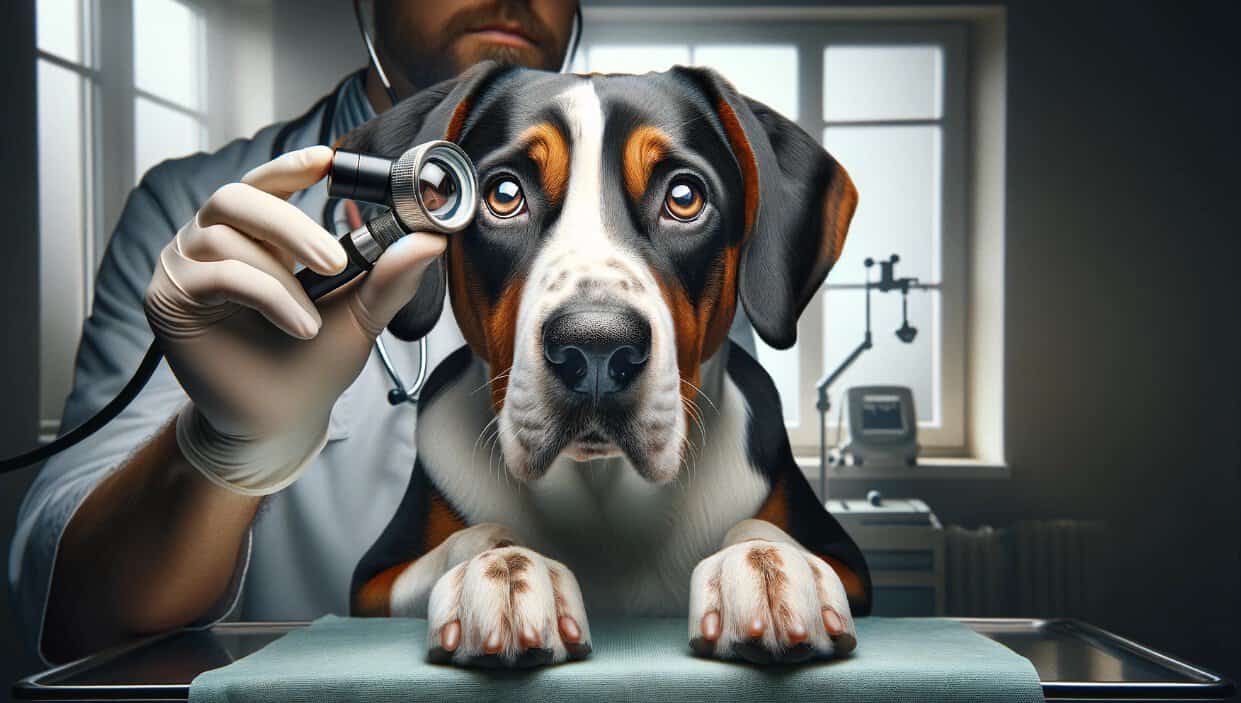
Understanding Breed Specific Eye Structure
The Braque du Bourbonnais, also known as the Bourbonnais Pointer, is renowned for its keen vision, which is an essential trait for a hunting dog. Their eyes are typically round and wide-set, giving them a broad field of view. The color ranges from hazel to dark brown, complementing their coat color. The eyelids fit well, protecting the eyes from dust and debris, which is crucial as this breed often spends time in outdoor environments.
One of the unique aspects of the Braque du Bourbonnais eye structure is the presence of a third eyelid, also known as the nictitating membrane. This thin, semi-transparent membrane is located in the inner corner of the eye and helps keep the eye moist and clean by spreading tears evenly across the surface. This feature is particularly beneficial for a breed like the Braque du Bourbonnais, which often engages in vigorous activities in various environments.
However, this breed’s eye structure also makes them susceptible to certain eye conditions. For example, the wide-set nature of their eyes can make them more prone to eye injuries from foreign objects. Additionally, the third eyelid, while beneficial, can sometimes become inflamed or infected, leading to conditions like cherry eye.
Understanding these unique aspects of your Braque du Bourbonnais’s eye structure can help you recognize early signs of eye issues and seek veterinary help promptly. Regular eye check-ups, good nutrition, and maintaining a clean environment can all contribute to your dog’s eye health. Remember, the better you understand your dog’s eye structure and potential risks, the better equipped you’ll be to safeguard their vision and overall eye health.
Common Eye Issues In Braque du Bourbonnais
As a veterinarian, I often encounter specific eye conditions in the Braque du Bourbonnais breed. Understanding these common eye problems can help you safeguard your pet’s Braque du Bourbonnais Eye Health.
- Progressive Retinal Atrophy (PRA)– This is a genetic disorder that gradually leads to blindness. Symptoms include night blindness and dilated pupils. Unfortunately, there’s no cure for PRA, but early detection can help manage the condition.
- Cataracts– This condition causes a cloudy appearance in the eye and can lead to blindness if untreated. Regular eye check-ups can help detect cataracts early, and surgical intervention can restore vision.
- Conjunctivitis– an inflammation of the eye’s outer layer. Symptoms include redness, discharge, and frequent blinking. This condition can be caused by allergies, foreign bodies, or infections and can be treated with medication.
- Entropion– an eye condition where the eyelid rolls inward, causing the eyelashes to rub against the cornea. This can cause discomfort, tearing, and even corneal ulcers. Surgical correction is often necessary to prevent further damage.
Remember, early detection of these conditions is crucial for maintaining your dog’s Braque du Bourbonnais Eye Health. Regular veterinary eye examinations should be a part of your dog’s health routine. These exams can help catch any potential issues early, allowing for prompt treatment and the best chance of preserving your dog’s vision.
Additionally, genetics also play a significant role in your dog’s Braque du Bourbonnais Eye Health. If you’re considering adopting a Braque du Bourbonnais puppy, it’s essential to know the breed’s health history. A reputable breeder should be able to provide you with health clearances for both of the puppy’s parents, which can give you an idea of any potential eye health issues your puppy may face in the future.

Nourishing Your Dog’s Vision: Essential Nutrients for Eye Health
Ensuring your Braque du Bourbonnais gets the right nutrients for optimal eye health is essential for maintaining clear vision and preventing age-related issues. Natural, nutrient-rich foods and supplements can play a key role in supporting their eyesight. From vitamin A-packed freeze-dried liver treats to antioxidant-rich blueberries and targeted supplements like Eyeplex by Standard Process, there are several ways to nourish your dog’s eyes. In this section, we’ll explore how these powerful ingredients contribute to long-term vision health and overall well-being.
Eyeplex by Standard Process
Eyeplex by Standard Process is a specialized supplement designed to support your Braque du Bourbonnais’s eye health with a blend of essential nutrients. Formulated with key vitamins, minerals, and antioxidants, Eyeplex helps protect against oxidative stress, supports retinal function, and promotes overall vision health. Ingredients like vitamin A, vitamin C, and zinc contribute to maintaining strong eyesight, while whole food ingredients provide additional phytonutrients for cellular protection. Adding Eyeplex to your Braque du Bourbonnais’s diet can be especially beneficial for aging dogs or breeds prone to eye conditions, offering targeted nutritional support to keep their vision sharp and healthy for years to come.
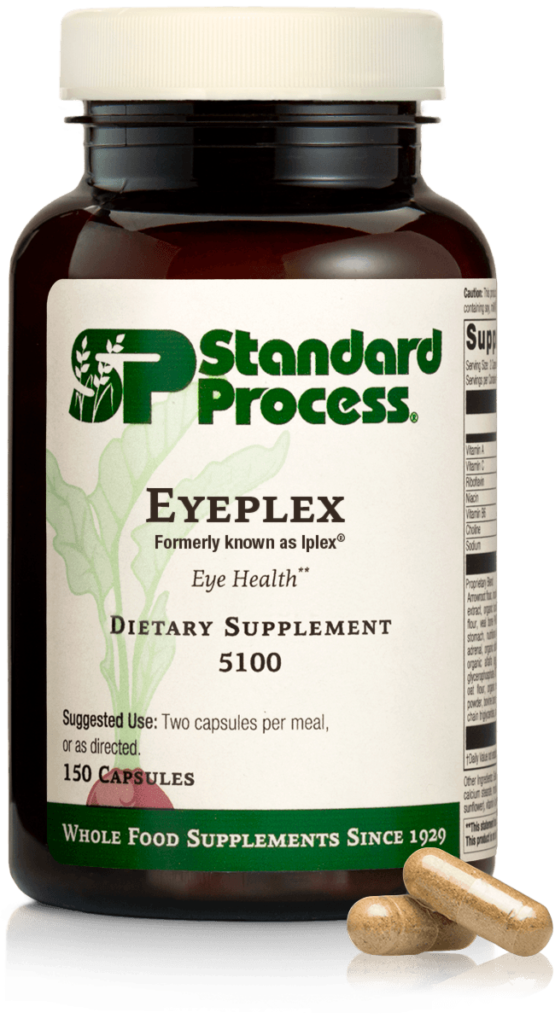
Freeze-Dried Blueberries
Freeze-dried blueberries are a powerhouse of antioxidants that can help protect your Braque du Bourbonnais’s eyes from oxidative stress and age-related damage. Rich in vitamins C and E, as well as anthocyanins, these tiny but mighty berries help combat free radicals that can contribute to eye diseases like cataracts and macular degeneration. Incorporating freeze-dried blueberries into your dog’s diet provides a natural and delicious way to support retinal health, reduce inflammation, and promote overall vision longevity. Plus, they’re a low-calorie, dog-friendly treat that makes a great addition to a balanced diet for long-term eye health.
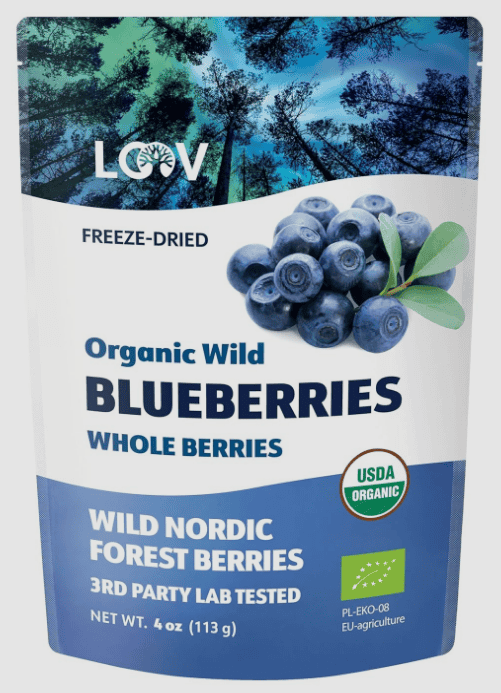
Freeze-Dried Liver
Freeze-dried liver treats are an excellent natural source of vitamin A, an essential nutrient for your Braque du Bourbonnais’s eye health. Vitamin A plays a crucial role in maintaining good vision, especially in low-light conditions, while also supporting overall immune function and skin health. Since liver is rich in bioavailable vitamin A, incorporating freeze-dried liver treats into your dog’s diet provides a convenient and nutritious way to promote optimal eye function. Just be sure to feed them in moderation, as excessive vitamin A can lead to toxicity. Adding these nutrient-packed treats to your pup’s routine is a simple, tasty way to support their long-term vision and well-being!
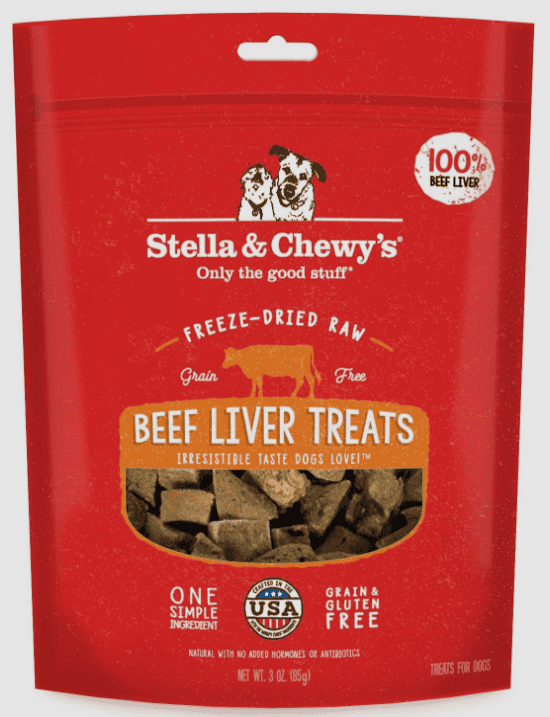
By prioritizing your Braque du Bourbonnais’s eye health through a balanced diet and nutritional supplements, you can help prevent many common eye issues. These simple steps can go a long way in ensuring your pup’s eyes stay healthy and clear for years to come.
It’s important to consult with your vet before starting any new supplement regimen to ensure it’s safe and beneficial for your particular pup. Remember, every dog is unique, and what works for one may not be suitable for another.
Preventing eye problems in your Braque du Bourbonnais doesn’t stop at diet and supplements. In the next section, we’ll discuss how environmental hygiene can further reduce the risk of eye issues.
With the right diet and care, your Braque du Bourbonnais can enjoy a life free from eye health issues. Remember, prevention is always better than cure, so start taking steps today to ensure your dog’s eyes stay healthy for years to come.
Keep in mind: Braque du Bourbonnais Eye Health is a long-term commitment that every dog parent should be dedicated to. Your dog’s eyes are just as important as any other part of their body, and they deserve the best care possible.
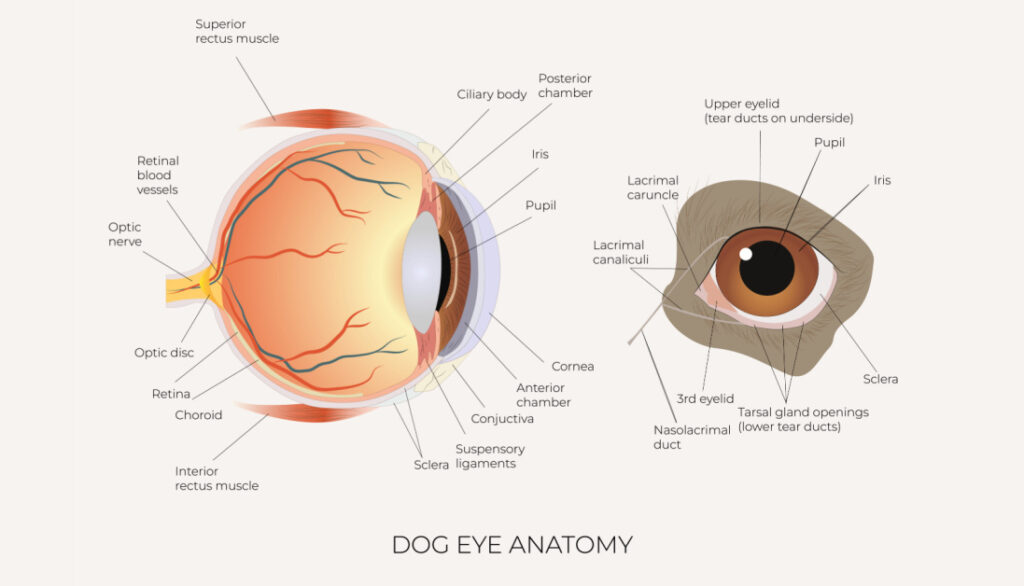
Environmental Hygiene To Reduce Eye Problems
When it comes to maintaining the eye health of your Braque du Bourbonnais, environmental hygiene plays a crucial role. There are a few essential factors that you need to consider:
Indoor Air Quality
Indoor air quality can significantly affect your Braque du Bourbonnais’s eye health. Dust, dander, and other airborne particles can irritate their eyes, leading to discomfort and potential eye problems. So, it’s crucial to keep your home clean and dust-free. Regular vacuuming, dusting, and air purification can help improve the indoor air quality. Also, avoid smoking indoors as secondhand smoke can be harmful to your dog’s eyes.
Sprays, Diffusers, Candles, Incense
Products like sprays, diffusers, candles, and incense can also cause eye irritation in your Braque du Bourbonnais. The chemicals and fragrances in these products can be harsh on their sensitive eyes. If you notice your dog rubbing their eyes, tearing up, or showing signs of discomfort after you’ve used these products, it might be best to stop using them or at least limit their use. Opt for natural, unscented products whenever possible.
Additionally, ensure that these products are kept out of your dog’s reach to prevent accidental contact with their eyes.
Outdoor Environment
While outdoors, make sure to protect your Braque du Bourbonnais’s eyes from potential irritants like pollen, dust, and debris. During walks or playtime, monitor your dog for signs of eye discomfort. If necessary, consider using dog goggles to protect their eyes.
By maintaining a clean and safe environment, you can significantly reduce the risk of eye problems in your Braque du Bourbonnais. Remember, their eyes are delicate and require careful attention. So, keep an eye on their surroundings and take necessary precautions to ensure their eye health.
Remember, a healthy environment leads to a healthier Braque du Bourbonnais!
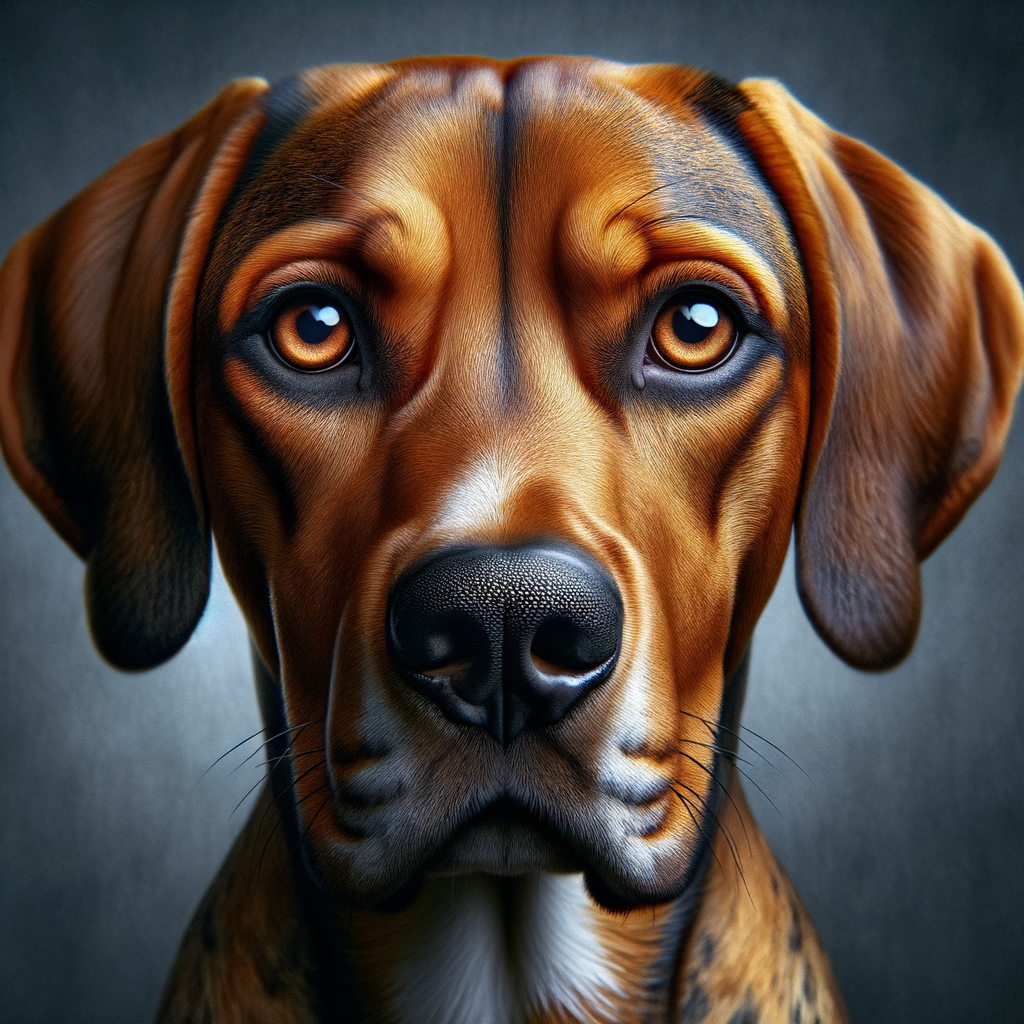
Routine Braque du Bourbonnais Eye Care & Maintenance
As a proud Braque du Bourbonnais parent, it’s crucial to understand the importance of regular eye care and maintenance. A healthy regimen can prevent many common Braque du Bourbonnais eye health issues. Here’s how to keep your pet’s eyes in top-notch condition.
Daily & Weekly Care & Maintenance
Examining your dog’s eyes daily is a habit you should cultivate. Look out for redness, discharge, or any signs of discomfort. If you notice anything unusual, consult your vet immediately. Regular cleaning is also essential. Use a soft, wet cloth or a pet eye wipe to gently clean around your pet’s eyes. Make sure not to touch the eyeball itself.
Weekly, you should check for any changes in your dog’s vision. You can do this by moving your hand from one side of your dog’s field of vision to the other and observing its reaction. If your dog doesn’t react, it could mean there’s a problem with its sight.
Monitor Hair Length, Nail Length, and Bath Frequency
Long hair around the eyes can cause irritation and lead to infections. Therefore, it’s important to regularly trim the hair around your Braque du Bourbonnais’s eyes. Make sure to use blunt-nosed scissors and to take extreme care not to injure your pet.
Long nails can also cause eye injuries, especially if your dog has a habit of scratching its face. Regularly trim your dog’s nails to prevent this. The frequency of baths is another factor to consider. Bathing your dog too often can dry out its skin and eyes, causing discomfort. On the other hand, not bathing your dog enough can lead to a buildup of dirt and bacteria around the eyes, which can cause infections.
As a general rule, bathe your Braque du Bourbonnais once every three months unless it gets dirty frequently. Always make sure to protect your dog’s eyes during bath time by using a vet-approved eye lubricant or a soft, wet cloth to cover the eyes.
Remember, regular eye care and maintenance is an integral part of Braque du Bourbonnais eye health. It not only helps prevent eye problems but also ensures your pet’s overall well-being. By following these tips, you can help your furry friend lead a happy, healthy life.
Frequently Asked Questions
1. What are common eye health conditions in Braque du Bourbonnais?
Braque du Bourbonnais dogs can be prone to various eye health conditions such as cataracts, progressive retinal atrophy (PRA), and entropion.
2. How can I identify if my Braque du Bourbonnais has an eye health problem?
Watch out for symptoms like redness, excessive tearing, squinting, cloudiness, or any changes in your dog’s vision. If you notice any of these signs, it’s best to consult a veterinarian for a proper diagnosis.
3. Can eye health conditions in Braque du Bourbonnais be treated?
Yes, many eye health conditions in Braque du Bourbonnais can be treated. The treatment options depend on the specific condition and its severity. Some conditions may require medication, while others may require surgical intervention.
4. How can I prevent eye health problems in my Braque du Bourbonnais?
Regular veterinary check-ups are essential to monitor your dog’s eye health. Additionally, maintaining good overall health through a balanced diet, regular exercise, and avoiding exposure to harmful substances or environments can help prevent eye health problems.
5. Can I use over-the-counter eye drops for my Braque du Bourbonnais?
No, it is not recommended to use over-the-counter eye drops without consulting a veterinarian. Different eye conditions require specific treatments, and using the wrong eye drops may worsen the problem or cause additional complications.
